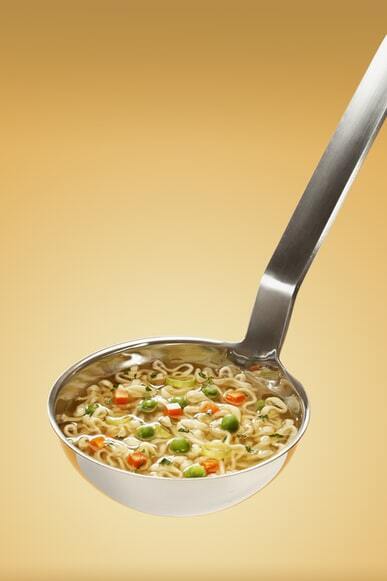Food
Seven reasons for fatigue after a meal and how to regain lost energy: tips from a nutritionist
Usually, eating fills us with energy and strength, but sometimes it's the other way around, and there are several explanations for this phenomenon that are not so scary. However, in some cases, you should consult a doctor.
As Melissa Priest, a nutritionist at the National Kidney Foundation in Illinois, explained in an interview with the American magazine Prevention, there is nothing surprising about mild discomfort after lunch or dinner. And the most common cause of this condition can be overeating.
"It works like this: food enters and starts moving along a conveyor belt. Various machines work to break down the food, package it for specific purposes, and deliver it to places that help the body continue its work. Obviously, this requires a lot of energy, which can be tiring for someone," Priest explained.
She also pointed out that the digestive process involves a hormone called insulin, which is produced by the pancreas and controls blood sugar levels. It has a major impact on energy levels after a meal. When a person eats, insulin levels increase dramatically.
"When this work is done, insulin levels drop, which can make people feel tired. This is a normal process, and drowsiness should not last long," she said.
To cope with post-meal fatigue or reduce its frequency, the nutritionist suggested including a mixture of complex carbohydrates, healthy fats, and lean protein in each meal, as well as choosing foods that are low in saturated fat, high in fiber, and minimally processed.
"Plus, you need daily movement, at least seven hours of sleep every night, and maintaining a water balance," the expert advised.
She also identified seven of the most common reasons why eating can be accompanied by a feeling of fatigue.
Alcohol
According to the expert, a glass of wine can make you feel drowsy after a meal. This is because alcohol depresses the central nervous system, making people feel drowsy. Experts recommend drinking no more than one drink a day for women, and no more than two for men.
Lots of fats and carbohydrates
Foods rich in fats and carbohydrates are quite tasty, but they can often make a person feel lethargic. The provocateur of this condition can be the hormone cholecystokinin (CCK), which is secreted from the small intestine.
"When you eat foods that are known to increase inflammation, such as red meat or sweets, your body can release cytokines (agents that help immune cells communicate with each other), and high levels of these provoke drowsiness after eating," Priest said.
Tryptophan
"When foods rich in tryptophan (a proteinogenic amino acid that is part of the proteins of all known living organisms) are eaten in large quantities, you may feel tired a few hours after eating. And it's found in turkey, chicken, milk, bread, chocolate, tuna, cheddar cheese, peanuts, oats, and much more," she said.
You ate too much
Sometimes feeling tired after a meal has more to do with how much a person ate than what they ate. And it's simple: the more food you take in, the more energy you need to cope with it.
"The more food, the more energy the body needs to break it down," the nutritionist said.
You may have a food intolerance
Food intolerances or even full-blown food allergies are often associated with unpleasant gastrointestinal symptoms such as stomach cramps or diarrhea. But sometimes such intolerances can be hidden.
"For example, whether you have a gluten sensitivity or celiac disease, you may feel tired after eating foods that contain gluten because it can trigger an allergic reaction," she said,
You are too dependent on caffeine
"A morning cup of coffee will give you a boost, but not for long. The stimulating effects of caffeine usually have a half-life (the time it takes the body to eliminate half of the caffeine) of three to five hours after you drink it," the nutritionist continued.
She added that the process of removing caffeine from the body can also cause drowsiness.
You may be sick
"Someone may feel tired if they have a problem that can interfere with the absorption of nutrients from food, such as anemia," Priest suggested.
She also recommended paying attention to a possible hormonal imbalance, insulin sensitivity, or idiopathic postprandial syndrome (IPS - low blood sugar). Its symptoms of hypoglycemia include feelings of fatigue, trembling, sweating, heart palpitations, dizziness, or even panic attacks.
The expert emphasized that there are many other reasons why a person may feel tired. Therefore, she called for repeated feelings of powerlessness after eating to consult a doctor to undergo a full checkup for hidden diseases.































